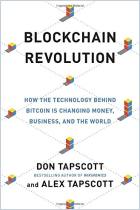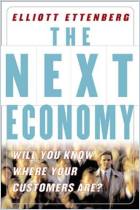Rejoignez getAbstract pour lire le résumé !

Rejoignez getAbstract pour lire le résumé !
Don Tapscott
The Digital Economy
Promise and Peril in the Age of Networked Intelligence
McGraw-Hill, 1997
Aperçu
If you know how to get your e-mail, you are already part of the digital economy, like it or not. Now, here's how to make money in the new age.
Recommendation
Don Tapscott provides an overview of the way the digitalization of information is transforming the economy and projects the likely changes ahead from his perspective in 1996. The book suggests ways to exercise leadership effectively in this transformed, networked world. However, since this thoughtful, well-organized book was written several years ago, it is mainly of historical interest now, because of the rapid changes in the digital world. Still, it is useful to apply some of the themes Tapscott developed when you consider how the digital economy is continuing to evolve. getAbstract recommends this well-written book for a general audience as well executives and managers who are interested in the unfolding of the new economy.
Summary
About the Author
Don Tapscott chairs the Alliance for Converging Technologies, which conducted a multimillion-dollar investigation into the information highway and its impact on business. He consults, speaks, and writes on information technology. He is the author of the best-selling Paradigm Shift and three other widely read books. He is also president of the New Paradigm Learning Corporation, a consulting firm specializing in helping organizations manage the transition to the digital economy.























Comment on this summary